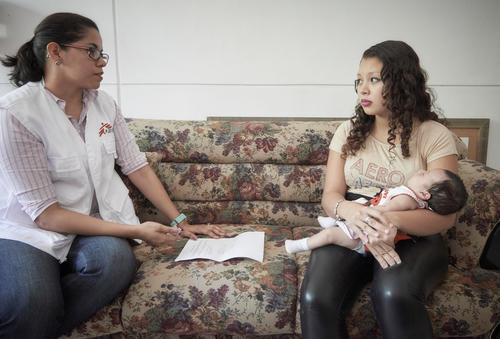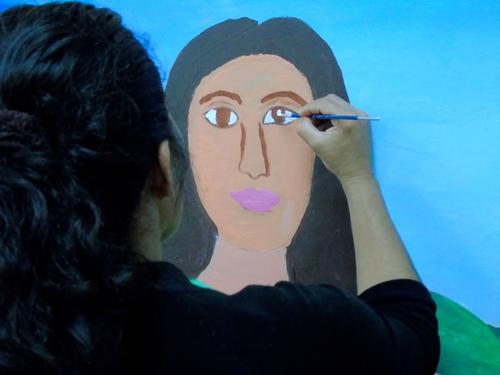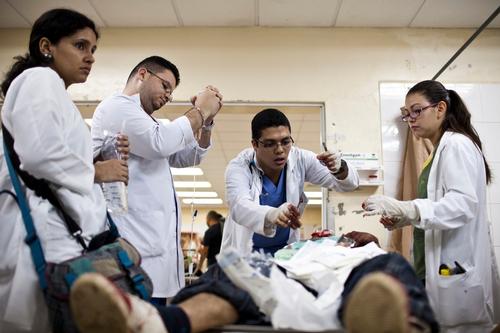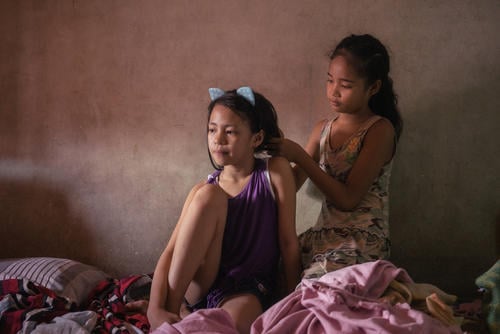“The truth is, I was afraid of doctors,” says 37-year-old Lidia Oro, holding her newborn in her arms. “My oldest son is 22 and I gave birth to him and the others at home, attended by a midwife.” In all, Lidia had six home births, but her seventh baby was born in a mother and child health clinic supported by Médecins Sans Frontieres (MSF) in Choloma, northwest Honduras.
After Lidia’s husband, a motorcycle taxi driver, told her that quality healthcare was available free of charge at MSF’s clinic, she conquered her fear of doctors and decided to give it a go, aware that birth complications can increase with age.
“I’m older now, and my husband told me to come”, says Lidia. “I saw they provided good assistance, and even when they performed all the tests on me, including for sugar levels, I didn’t pay a thing”.
MSF has been working in the clinic since March 2017. Choloma, a rapidly expanding industrial area, is now the third most populous city in Honduras and is notorious for its high levels of violence. With only a few hospitals nearby, women in this area previously had difficulty accessing medical services; few pregnant women received antenatal care and vaccination coverage was low. The result was a high rate of medical complications among women of reproductive age and high numbers of childbirth-related deaths.
“We saw Choloma as a priority”, says MSF project coordinator Irene Huertas. “Most of the women in the area went to nearby hospitals, such as those in San Pedro Sula, to give birth, often arriving with complications which might have been picked up by routine antenatal care. We provide support to this clinic with the aim of reducing mortality and morbidity rates among women of reproductive age”.
MSF’s Dr Diana Castillo, from Honduras, oversees consultations at the clinic. “When MSF took over the clinic, there were between three and seven deliveries per month”, she says. “Last month, 34 women gave birth at the clinic”.
The clinic is so busy that it was important to reinstate medical services to 24 hours a day, seven days a week. “Currently, we see 15 to 20 new pregnancies per day and do 60 to 80 daily check-ups,” says Dr. Diana. These include antenatal and postnatal care, family planning, and emergency care.
Most of MSF’s patients are young women. “We see a lot of teenagers aged from 15 to 17, who come for antenatal consultations,” says Dr. Diana. “Often they are referred to us from other health centres, because this is the only medical public facility open 24 hours in the area.”
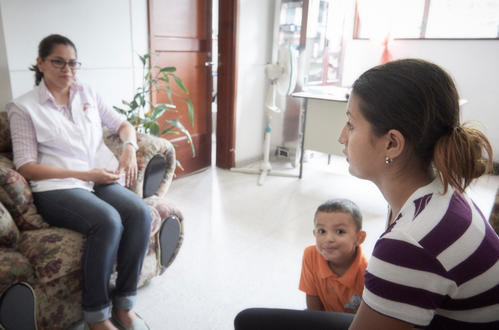
Some women do not arrive at the clinic until they are already in labour. “Often they come from faraway places and have never had any antenatal care,” says Dr. Diana. “For many, this is their first experience of a clinic.”
As well as mother and child healthcare, MSF provides mental healthcare in Choloma. “We know that there are enormous needs regarding mental healthcare amongst people in this area”, says MSF’s Ana María Tijerino, who oversees this part of the programme.
“People are frequently exposed to violent situations, causing them huge stress. We see patients who talk about death and suicide – feelings which have an impact on their family life or school life – which stems from the violent environment. We also see patients with highly complex conditions that in some cases can be classified as psychiatric and require specialised support”.
MSF’s health promotion team is working to raise awareness in the community on the services offered in the clinic. This team also plays an important role in gaining understanding of the needs of the community, to ensure that the services are adapted to those needs.
Since taking over management of the clinic, MSF has trained the health staff working there, provided medical supplies and equipment, standardised hygiene protocols and made structural improvements to the building. MSF has also set up a triage system and an emergency referral system, for patients who need more specialised medical attention.
“It’s an ambitious project which aims to provide comprehensive reproductive healthcare in Choloma”, says Irene. “We are working alongside the Ministry of Health and the municipal authorities, and this is a great success in itself: all parties working together to provide care for the region’s women”.
MSF has been working in Honduras for more than 40 years.




